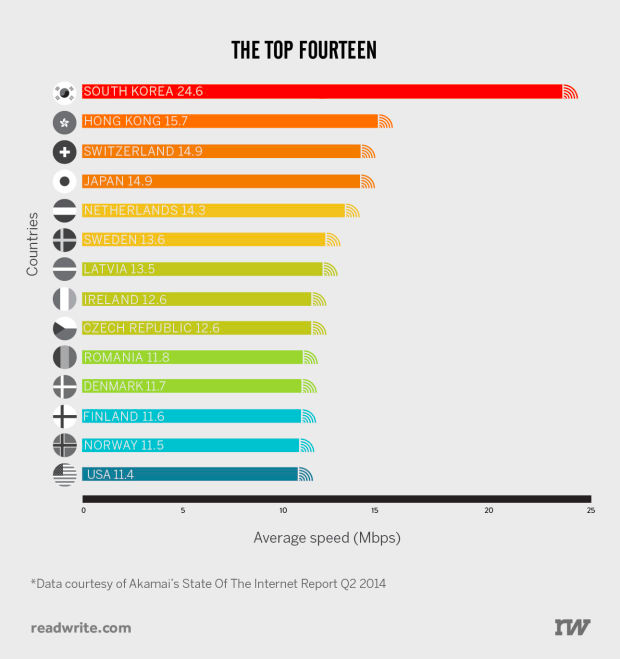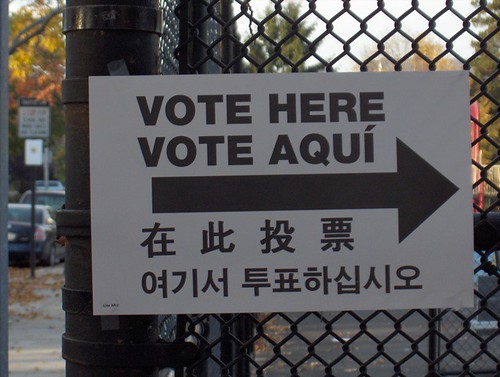Here in the US, the free market has left us with monopolies that aren't interested in a highly competitive market or in providing end users with the best speeds possible.
Here are the numbers:
The US is #14 in the world for average internet connection speed:

source: http://readwrite.com/2014/10/09/us-broadband-slow-overpriced-south-korea-romania

source: http://readwrite.com/2014/10/09/us-broadband-slow-overpriced-south-korea-romania
In fact, the US ranks 30th out of 33 countries for the cost of 45 Mbps broadband connections.
Our internet costs us so much because consumers have little choice. Most markets are dominated by just one or two main providers.


source: http://www.huffingtonpost.com/2014/03/04/cable-company-map_n_4892435.html
And, when you look only at broadband providers, a full 75% of American households only have a choice of one provider:

source: http://www.nytimes.com/2015/02/26/technology/limited-high-speed-internet-choices-underlie-net-neutrality-rules.html?_r=0
So, to all of you out there who think the FCC is doing the wrong thing on net nutrality, let's hear your plan (I’m talking to you, Ajit Pai). How is the US going to get fast and cheap broadband to our citizens?
And, when you look only at broadband providers, a full 75% of American households only have a choice of one provider:

source: http://www.nytimes.com/2015/02/26/technology/limited-high-speed-internet-choices-underlie-net-neutrality-rules.html?_r=0
So, to all of you out there who think the FCC is doing the wrong thing on net nutrality, let's hear your plan (I’m talking to you, Ajit Pai). How is the US going to get fast and cheap broadband to our citizens?



